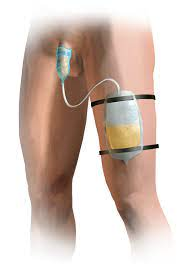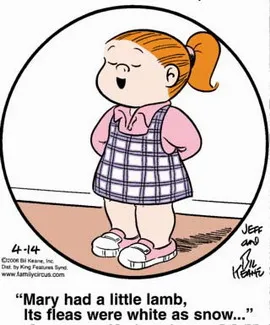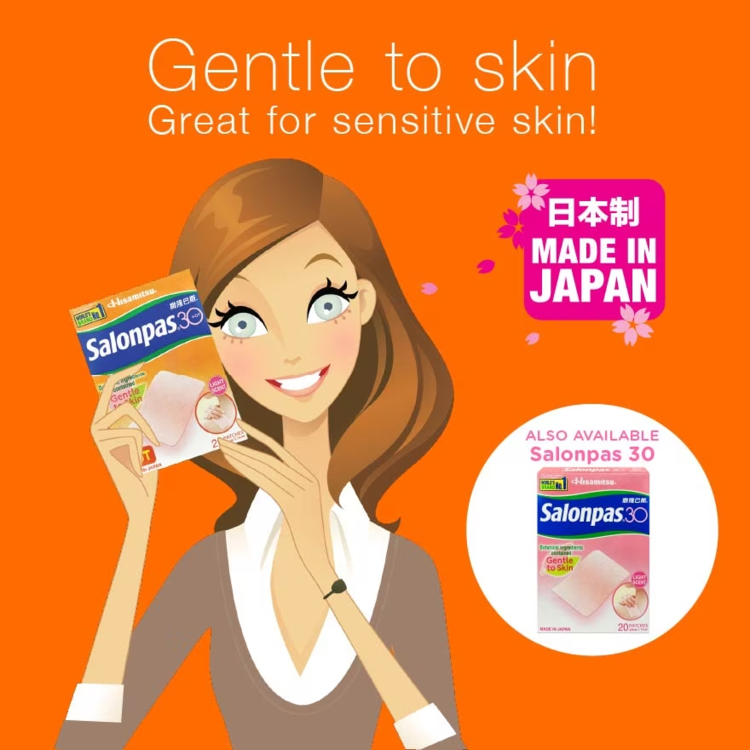-
Posts
1,956 -
Joined
-
Last visited
-
Days Won
5
Everything posted by unicorn
-
Trump is also too old and mentally weak. And much, much, worse than that. Hint: try using google translate. It's free.
-

Ridley Scott's Movie "Napoleon" Splits The Critics
unicorn replied to PeterRS's topic in Theater, Movies, Art and Literature
Well, the movie did focus more on his negative qualities. It did give him some credit, but the credit was muted. More so than Waterloo, his takeover of Moscow was probably more crucial to his downfall. His inability to account for the logistics involved (unlike the Russians, the French weren't willing to resort to cannibalism) caused him to lose the vast majority of his once vast army. -
All movies over 2.5 hours long used to have intermissions. Having 3+ hours-long movies without intermissions is a new (and unpleasant) phenomenon. Thankfully, most live theater, opera, etc., still provide for intermissions if the length exceeds 2.5 hours. I certainly believe it would benefit everyone to resume the practice in movies as well. Even for those who can last that long, I'm sure most would appreciate a break after some 2 to 2.5 hours. I don't see who benefits from having these super-long movies with no breaks. I've had kidney stones and don't want to go into these movies dehydrated. Won't do it.
-
Dude, you're resurrecting a 6 week-old post.
-

Progressive success in November elections in the U.S.
unicorn replied to Marc in Calif's topic in The Beer Bar
You are not being paid, so obviously you don't have to do anything. However, if you dispute facts in an article with reliable references, and you have no references to contradict the other article's references, you're simply acknowledging you're wrong. Nothing wrong with that, but it's a pretty squirrely way to admit you're wrong on this subject. -

Progressive success in November elections in the U.S.
unicorn replied to Marc in Calif's topic in The Beer Bar
It's far too early to be paying attention to poll results at this time. Many things will change over the coming months. Biden took some (in my opinion) undeserved hits due to economic woes in 2022 and early 2023, which primarily came from causes way outside of his control such as China's disastrous "Covid Zero" policy and the Saudis jacking up the price of crude oil. Obviously, oil price increases resulted in increased prices in many goods, as did supply-chain issues. Those issues have resolved, and clearly inflation has come way down, along with oil prices. Of course, Xi and bin Salman could still significantly damage our economy if they wanted to, and it may come down to economics. Although I don't know that either meets the definition of dementia, it seems clear to myself and most other Americans that both Biden and Trump have shown cognitive decline, which will likely only get worse over the next 5 years. Neither is a good choice. I have my suspicion that if Biden and Trump get the nominations, neither will want to debate. Third party candidates can also play spoiler roles, as they have many times in America's past. Other Democrats, such as Kennedy, could hand the election to the Republicans. Having two Republicans on the ballot would have the opposite effect. Another unknown is whether Trump will get a criminal conviction before the general election. The Trump team has done everything it can, of course, to delay things, but some trials are set to start soon. I don't think most independents (who always determine the election results) will want to vote for a convicted criminal. So putting hopes or fears on poll numbers now seems a bit silly at this time. -
Some guy in Atlanta murdered a Subway employee for putting too much mayo on his sandwich. Then he shot her coworker, for no apparent reason. I hope he never sees the light of day again... 😪 https://www.atlantanewsfirst.com/2022/06/29/man-suspected-shooting-two-subway-employees-atlanta-identified/
-
I still get the print copies of The Advocate and OUT sent to me in the mail. When there were print hardcore magazines, I would rifle through them and buy the one with the men I thought would get the biggest loads outa me. One of the most common was Mandate. Sometimes could be Blueboy...
-
This was the reporting on June 15th of this year (2023): https://www.latimes.com/entertainment-arts/story/2023-06-15/center-theatre-group-programming-pause-staff-layoffs-turmoil "...Facing a significant budget shortfall, Center Theatre Group on Thursday announced that it would lay off about 10% of its full-time staff and pause season programming at the Mark Taper Forum after “Transparent” concludes its run on June 25. The pause is expected to continue through the 2023-24 season, but there is no confirmed end date yet. The first show to be affected is the world premiere of L.A.-based playwright Larissa FastHorse’s “Fake It Until You Make It,” which was scheduled to open on Aug. 2. Fasthorse was going to be the first Native American writer to have a mainstage production at the Taper, and the postponement marks a disappointing end to a season slated to exclusively feature plays written by women-identifying or nonbinary playwrights, the majority of whom were BIPOC artists...". After completely shutting down, with no plans to re-open, they smartened up and switched to non-woke productions, which the viewing public was actually interested in seeing. QED
-
-
I never watched Friends much, so I wouldn't have suspected him had you not responded. Well, if he stole that individual joke, he did develop into a whole long (and funny) routine around it, so he gets at least some credit. Also, I suspect that some of these "thefts" are perhaps subconscious or unintentional.
-
It sounds as though that comedian may have stolen that joke... 😉
-
My fiance and I were listening to a comedian not long ago, and he was joking at how incomprehensibly Sir Elton John sings his lyrics. For instance, he misheard "Hold me closer, tiny dancer," as "Hold me closer, Tony Danza." I can think of some more recent songs I've gotten the lyrics wrong on. In Doechii's What's Up? song, for example, I thought she was singing "every black boy needs a little love," when in fact she's singing "every block boy needs a little love": In SZA's Kill Bill song, I was wondering why she was explaining why she was getting the sensitive SalonPas, when my beau explained that she was singing "I get the sense that it's a lost cause." 😄 Any songs you've had trouble figuring out the lyrics? 😁
-
That reminds me of the news clip I remember seeing some 4 years or so ago. They interviewed some idiot who admitted she voted for Trump in 2016. Her foreign-born husband found himself deported to his native country (I believe it was Mexico) due to Trump's hard-nosed immigration policies (her husband got a DUI). Then it was, wah, wah, wah. I should have known I was voting for an asshole. For those with short memories, it was Trump who set up a Muslim immigration ban. The Republican party is not the party for religious diversity. It's the party for the religiously narrow-minded. If Palestinian-Americans, or even Muslims in general, assist Trump in winning, they'll deserve everything they have coming to them. What preposterously short memories! Unfortunately, a lot of other people will suffer in addition to themselves.
-
Wow. You just admitted I was more right than I even imagined. I just said I hadn't heard of any other theater group going belly-up in LA, and you just admitted that you scoured our entire nation from coast to coast and couldn't find one other theater group, in the entire nation that has had to close shop?? Just a few that have had some cutbacks? Well, while it's certainly a weak apology and admission of wrongfulness, I'll take it. Thanks for confessing you fell flat on your face (and for doing the research)! 👍
-
C'mon. That self-serving statement is completely ridiculous and you know it. There are almost countless theater groups in the Los Angeles area, and this is the only one I've heard of which has folded. Everyone else has been thriving, and they folded just a few months ago. I suppose it's possible that those who ran that theater group may have been delusional enough to believe that statement, but you are neither stupid nor delusional, so I cannot imagine for a moment that you yourself believe that statement. It should be shameful to even present that statement as evidence of anything. Theater (and opera, etc.) groups depend on donors, subscribers, and ticket holders for their existence. Obviously they pissed off too many of them. Blaming it on the pandemic is absurd.
-
Well, I do agree that we should end border hysteria. I also agree that Finland could be more generous towards refugees given the much larger burden accepted by other EU nations (as well as the US). I suspect that anyone wiling and able to make such an arduous trek from Syria or wherever to Finland would probably end up being a highly productive member of Finnish society. I also have a suspicion that it's probably in its interest to accept refugee immigrants in order to sustain its population. Finnish citizens have the right to live and work in any EU country, and I imagine that a substantial proportion are more than eager to move to EU countries with less hostile climates. As a physician, if I were a Finnish citizen, I'd try to find a job in a more pleasant EU country such as Malta--or even France, Spain, or Italy.
-
Probably like most other audience members, I was unaware of the similarity to the Broadway production (of which I was unaware), and purchased the ticket on the basis of the company's blurb and familiarity with the musical. Certainly, I hadn't read the NYC reviews, nor have I ever watched the Tony Awards ceremony. When the group advertised the show, they were upfront about the casting, which didn't bother me, but they specifically said the words were not changed, which was factually false. Along with many other audience members, I felt duped, and reacted accordingly. Liars most often eventually get their due, and their ticket sales and donations obviously suffered. I'm still waiting for Trump to get what should be coming to him... 😉
-
Yes, that link does confirm that Russia does, indeed, have a fence all along its border with Norway: "...On the Norwegian side there are no physical hindrances on the border and it is permitted to move all the way to the border itself, except for Storskog, Skafferhullet, and some hydro power stations, where there are fences where roads reach the border. On the Russian side there is a fence located anywhere between 0 and 5 kilometers (0 and 3 mi) from the border. Although not electrified, it has sensors which will notify the border controllers if touched. The fence stretches the entire distance between the Barents Sea and the Gulf of Finland and was built during the Cold War to keep in the population of the Soviet Union. It remains the only barbed-wire fence along a Russian border in Europe...". The only reason @Moses's photo doesn't show a fence is that Russia's fence is often well inside its territory. It reminds me of the old Russian saying: @Moses большой лжец.
-
Well, you're kind of talking out of your ass again. At the time I had purchased the tickets for the Woklahoma!, the production hadn't started so there were no reviews. I did stop buying tickets to their shows after that (including forgoing the woke 1776). The fact that many others felt the same as I did was highlighted by the group's bankruptcy. The proof's in the pudding.
-
A second movie came out recently, Killers of the Flower Moon, which is well over 3 hours long, as is Oppenheimer. Neither my fiance nor I feel comfortable holding our bladders for that long, so we'll wait until they come out on a streaming service to which we subscribe, or perhaps will see them on a long plane flight (we'll be on a very long flight LAX to DOH on Qatar Airways in late January). If it's really necessary to have movies that long, I feel they should have intermissions. Anyone else here agree with me?
-
By the way, as I reported on another site, the group which produced those problematic works cancelled their season and essentially went bankrupt several months ago. I guess that even in a more progressive city such as Los Angeles, there weren't enough paying audience members willing to buy tickets to such productions.
-
-
Actually, in this instance I agree with most of what @Moses has said on this subject (yes, they shouldn't sell rail tickets unless there is a visa, but no, it's not the Russian border guards' duty to enforce Finnish law unless they've agreed to do so), but this statement seems to be a preposterous speculation, unless you have real evidence to back it up. And, no--an unsubstantiated statement by the Russian press is not evidence.












